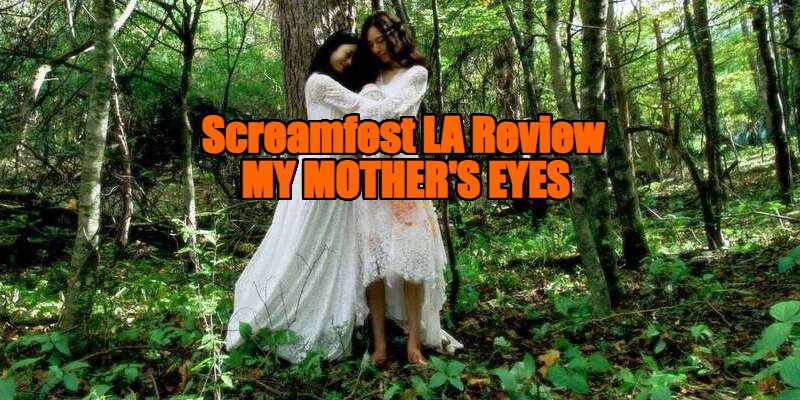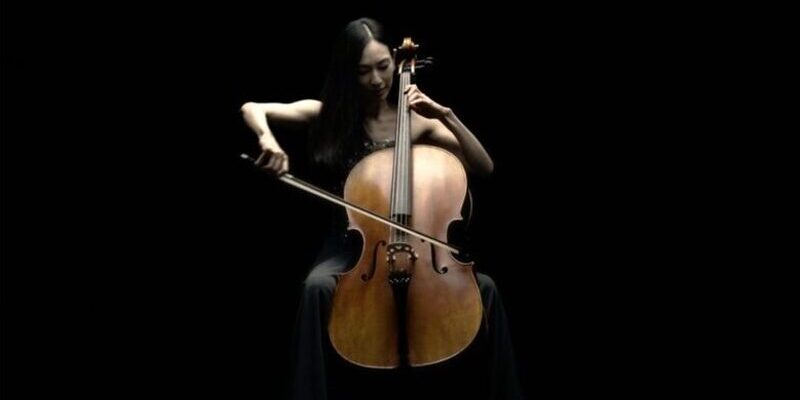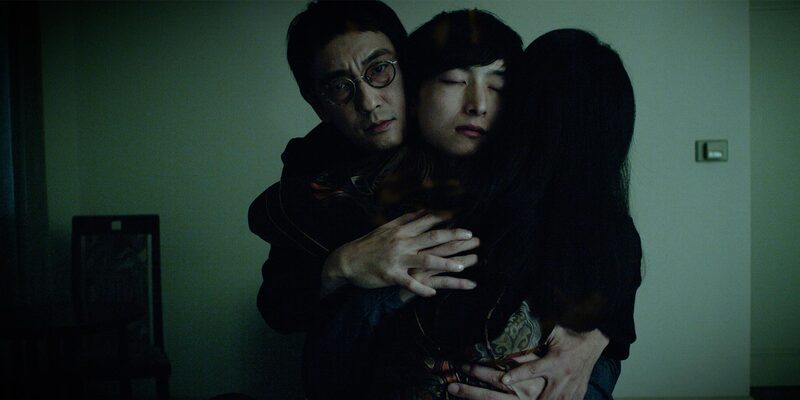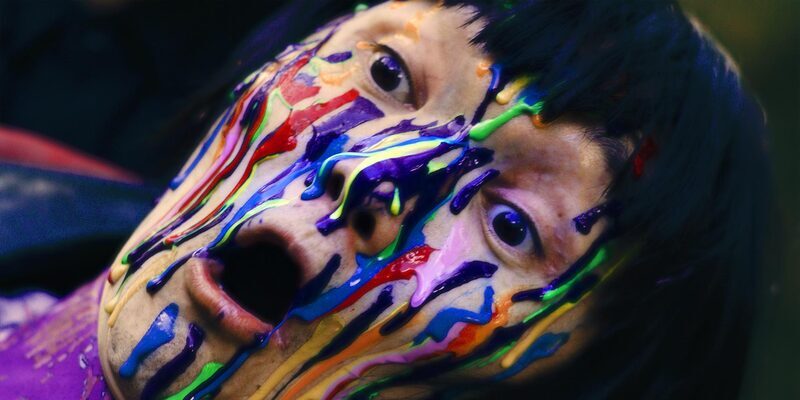
A mother attempts to connect with her daughter through a device that
allows her to see through her eyes.
Review by
Eric Hillis
Directed by: Takeshi Kushida
Starring: Akane Ono, Mone Shitara, Takuma Izumi, Shusaku Uchida, Kosuke Hoshi

When composer Bernard Herrmann was tasked with providing musical
accompaniment to the brutal stabbing of a showering Janet Leigh in
Hitchcock's
Psycho, it's no surprise that he opted to score the scene solely with
strings. There's something particularly violent about such instruments,
particularly the cello. Watch a cellist in full flight as they stab and
rake their bow across their instrument's strings and it can often look
like an act of wildly violent catharsis.
It's no surprise then that so many horror movies have featured
cellists, from What Lies Beneath to the recent
The Perfection, while movies like Short Cuts and
Tar
have featured troubled women who play the instrument.

The latest filmmaker to mount a cello between the legs of their leading
lady is Takeshi Kushida. His anti-heroine is Hitomi (Akane Ono), a cellist who can only relate to her young daughter Eri (Mone Shitara) when the two perform together. Hitomi had the child out of wedlock
and regrets not having an abortion, something Eri has picked up on due
to her mother's coldness.
Hitomi's eyesight is rapidly failing and she suffers increasing
blackouts. While driving her daughter home from a recital, Hitomi loses
her sight just as Eri decides to ask her mother why she kept a child she
clearly never wanted. Ploughing her car into the wall of a tunnel,
Hitomi wakes in hospital to find that she's now permanently blind and
Eri is paralysed from the neck down.

As her sight was fading, Hitomi had become fascinated with an article
regarding a scientific breakthrough – a contact lens that can restore
sight to the blind. Contacting the writer of the article, Hitomi is put
in touch with the creator of the device (Shusaku Uchida), who
takes her to live in the remote home he shares with his teenage son
Satoshi (Takuma Izumi), who also happens to be a cellist. There
Hitmoi is fitted with the lens, which do indeed miraculously restore her
sight. With the use of an app, Hitomi can control the level of light
that enters her new artificial retina. The app also allows anyone else
to see through her eyes on any device running the programme. As a means
of connecting with her daughter, Hitomi pairs her lens with Eri's VR
headset, allowing her to see the world through her eyes rather than
staring at the ceiling of her hospital room all day. Hitomi also agrees
to let Eri essentially control her actions by feeding her words which
she must repeat, no matter how uncomfortable they might be for Hitomi to
speak.
If you've seen Kushida's previous feature,
Woman of the Photographs, you'll be familiar with his curious blending of sentimentality and
sadism. If the bonding of mother and daughter seems heartwarming at
first, boy does it get weird. Forcing her to speak, Eri manipulates her
mother into seducing Satoshi, and watches from her hospital bed as her
mother gets intimate with the young man. When Hitomi gets pregnant,
Eri's own stomach begins to mysteriously swell, confounding her
doctors.

Kushida's obsession with technology and flesh might lead some to label
him a Japanese cousin of David Cronenberg. He certainly has some ideas
here that the Canadian auteur would be proud of, but he never quite
explores them in any great detail. You may find yourself mouthing the
words "well, that's weird" at regular intervals throughout
My Mother's Eyes, but there isn't much food for thought. The idea of an app that
connects parents with their children is one that would no doubt fuel a
more interesting film, as it raises very modern issues regarding how to
walk the line between monitoring your children and invading their
privacy. Kushida simply wields it as a device to generate a few shock
moments however. There's also an idea worth exploring here regarding
whether a virtual connection is a viable substitute for the real
thing.
It all leads to the sort of bloody climax Japanese genre filmmakers
excel at, with a cello bow unsurprisingly wielded as an instrument to
tear through brittle flesh. It's sprung on the audience too early
though, as the film hasn't gone far enough at that point in developing
or cementing its curious themes.


